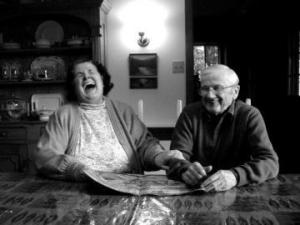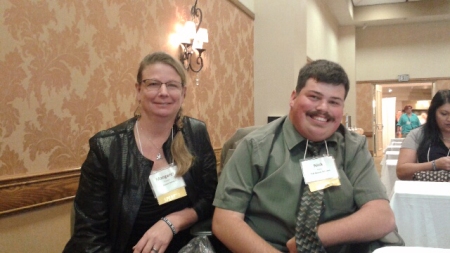
Dear Friends of Full Access,
I’ve seen the documentary: Stress, Portrait of a Killer, six times. The first was in my Psychology 203 class. We were talking about the effect stress has on the body and brain. I was blown away by the information neuroscientist, Robert Sapolsky, has discovered over the course of his 30 year career. In this film, he and other scientists describe profound, lifespan depleting effects of stress on the immune and cardiovascular systems, DNA expression, brain function, and even appearance. I went home and watched it again. Then I showed it to a friend. I watched it twice more in other classes then showed it to another friend. This information is potentially a game-changer in a culture that values a high-stress, multitasking lifestyle. The antidotes are simple: taking time to breathe, laugh, and connect with others, as well as feeling a sense of control and empowerment in our lives.
The Physiological Stress Response
Our body’s stress response, commonly known as the “fight or flight” response, is highly functional in acute, life-threatening situations. During these times, our body secretes hormones that direct all non-essential functions to shut down until the threat has been averted. Stress hormones also stimulate an increase in heart rate, sending more blood to our muscles so we can move more quickly and have more strength.
Our modern lives tend to be chronically stressful. Financial, familial, political, health, and professional concerns can overwhelm us. We move through our days bathing in stress hormones that should only be present during times of crisis, but are often constant companions.  The problem is that our bodies react as though we are being chased by a tiger: immune, reproductive, and digestive systems function poorly, while our heart rate and blood pressure stay high. In the long run, chronic stress has been associated with a build-up of plaque in blood vessels, decreased connectivity between brain cells, resulting in diminished memory, decreased ability to experience joy, and a higher distribution of fat around our mid-sections. All of this equates to a shorter lifespan and poorer quality of life.
The problem is that our bodies react as though we are being chased by a tiger: immune, reproductive, and digestive systems function poorly, while our heart rate and blood pressure stay high. In the long run, chronic stress has been associated with a build-up of plaque in blood vessels, decreased connectivity between brain cells, resulting in diminished memory, decreased ability to experience joy, and a higher distribution of fat around our mid-sections. All of this equates to a shorter lifespan and poorer quality of life.
So What Can We Do About it?
Stress is inevitable. Just by living a typical Western life, most people are under constant demands to expend time and energy. We spend most of our week barely maintaining our home and community lives until the weekend finally comes when we try to catch-up and, with any luck, get some rest. Many of you have children, some with very high needs. They keep you busy and you would do anything for them. Ironically, the way you can preserve your best parenting power, is by taking time for yourself.
 Studies show that some of the most profound reversals of the damage caused by chronic stress are: social connection, personal empowerment, and mindfulness. Having even one close relationship that allows you to talk through your issues can have a therapeutic effect. Social connection not only gives us someone to talk to, it also gives us opportunities to feel loved and valued, to laugh, and to put our lives into perspective.
Studies show that some of the most profound reversals of the damage caused by chronic stress are: social connection, personal empowerment, and mindfulness. Having even one close relationship that allows you to talk through your issues can have a therapeutic effect. Social connection not only gives us someone to talk to, it also gives us opportunities to feel loved and valued, to laugh, and to put our lives into perspective.
Another important contribution to stress reduction is feeling a sense of control over at least some part of our lives. According to my favorite documentary, this can be as simple as being captain of the softball team. Feeling personally empowered and that our input is valued by our community is associated with improved health and well-being, so start that book club!
 Mindfulness, in its most basic form, is the practice of focusing one’s attention on the experience of the present moment, without judgment. Research has shown that as few as 6 weeks of mindfulness practice can significantly reduce symptoms of stress, depression, and anxiety. These benefits not only occur for the practitioner of mindfulness, but also for the people in relationship to that person. Stay tuned for a more in-depth look at the benefits of mindfulness training for people with disabilities, their families, and caregivers.
Mindfulness, in its most basic form, is the practice of focusing one’s attention on the experience of the present moment, without judgment. Research has shown that as few as 6 weeks of mindfulness practice can significantly reduce symptoms of stress, depression, and anxiety. These benefits not only occur for the practitioner of mindfulness, but also for the people in relationship to that person. Stay tuned for a more in-depth look at the benefits of mindfulness training for people with disabilities, their families, and caregivers.
Melissa Farley
Personal Agent




 Posted by Full Access
Posted by Full Access 


